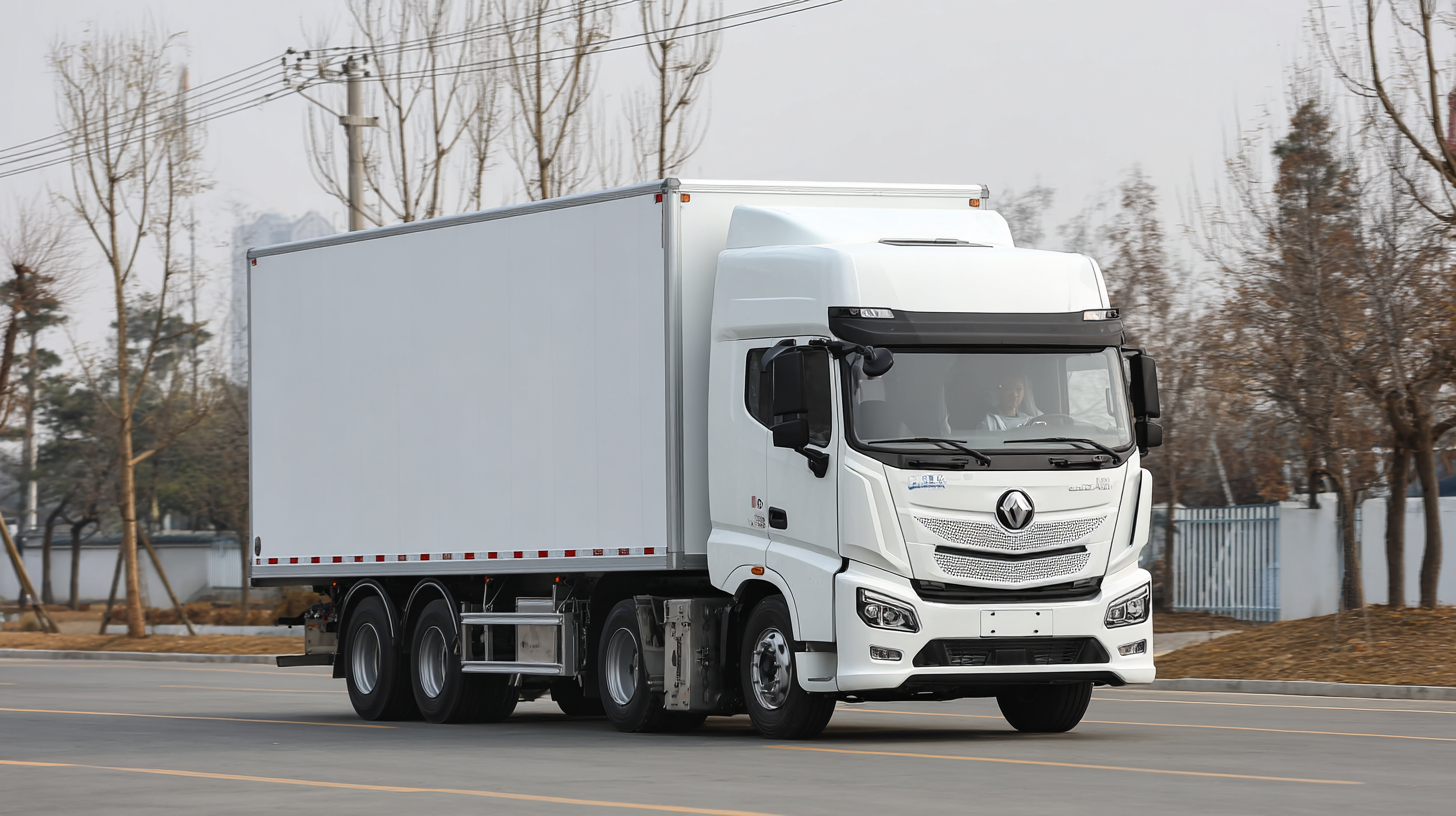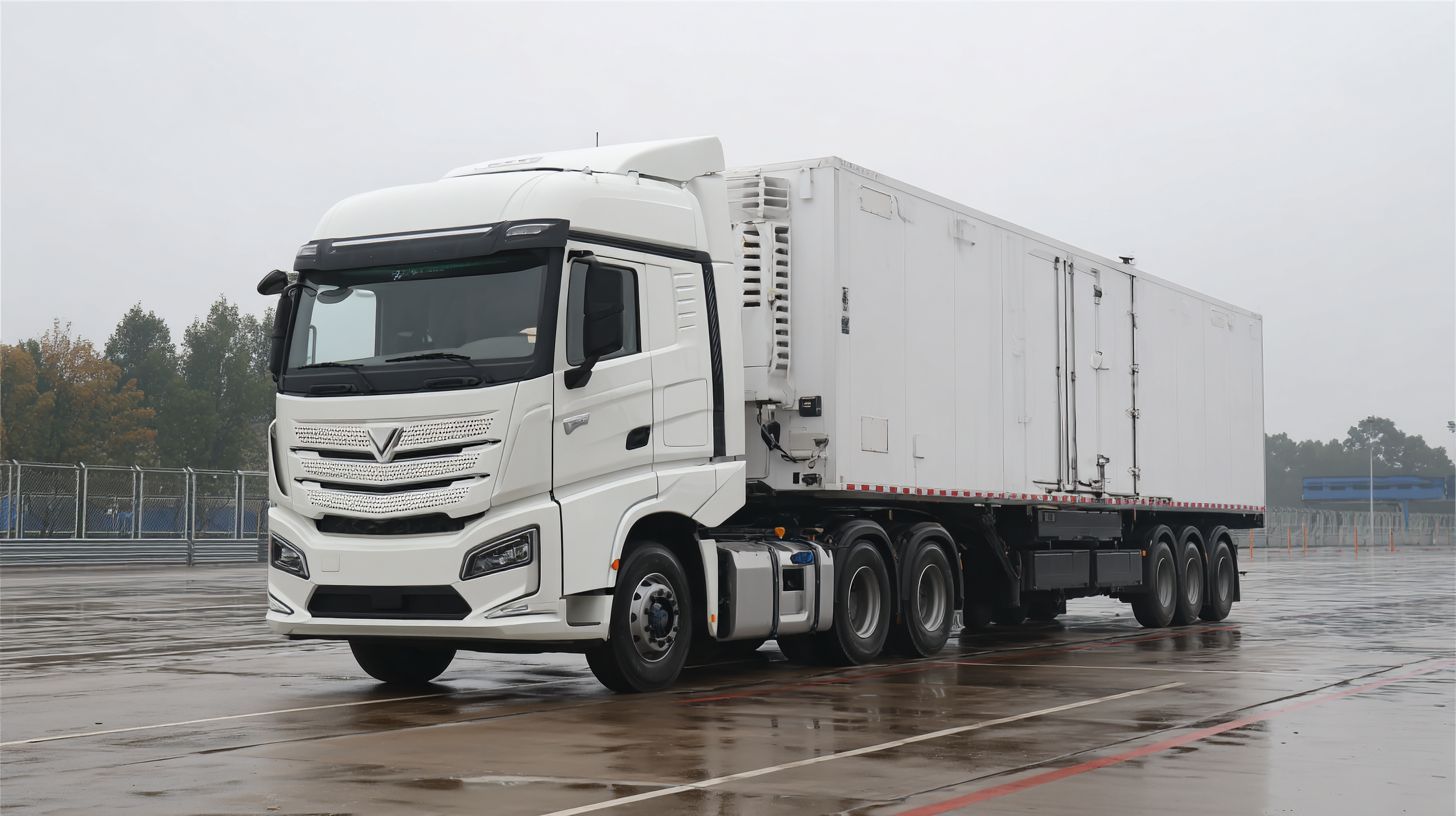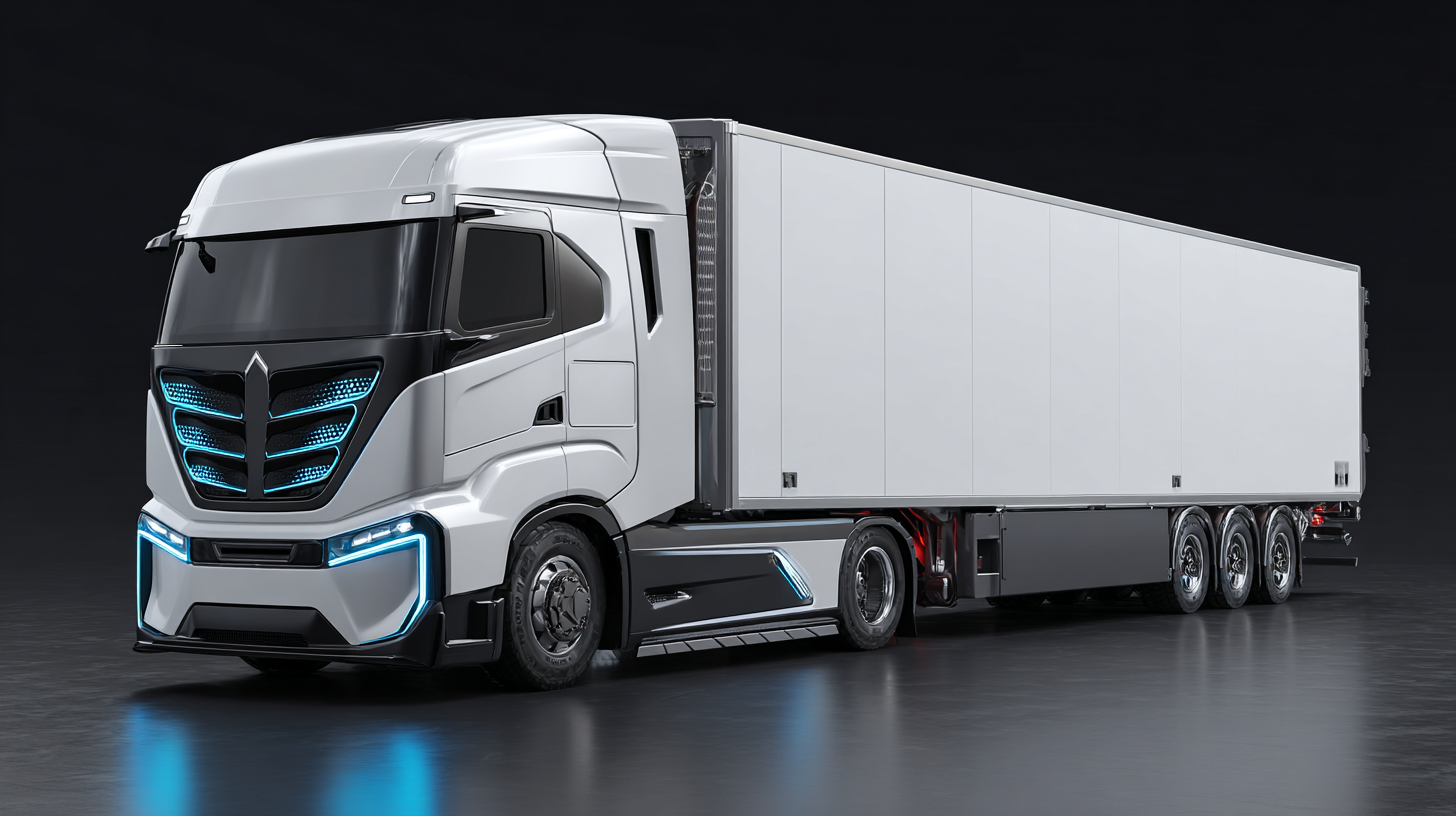Sorry. We did not find anything.
5 Reasons Why Chinese Electric Trucks Are the Future of Transportation
In recent years, the transportation industry has witnessed a transformative shift towards sustainability, with the rise of electric vehicles leading the charge. Among these advancements, Chinese electric trucks have emerged as a frontrunner, positioning themselves to revolutionize logistics and freight transportation. With their innovative technology, competitive pricing, and commitment to reducing emissions, these vehicles are not only addressing the pressing concerns of environmental impact but also enhancing operational efficiency. This article delves into five compelling reasons why Chinese electric trucks are poised to shape the future of transportation, highlighting their potential to influence global markets and set new industry standards. As the world increasingly prioritizes sustainable practices, the adoption of Chinese electric trucks offers a promising glimpse into a cleaner, more efficient future for transportation.

Benefits of Electric Trucks in China's Transportation Sector
China's transportation sector is undergoing a significant transformation, with electric trucks leading the charge towards a more sustainable future. One of the primary benefits of electric trucks is their reduced environmental impact. According to a report by the International Energy Agency (IEA), the adoption of electric vehicles, including trucks, could cut greenhouse gas emissions from the transportation sector by up to 70% by 2050. This shift not only aligns with China's goals to peak carbon emissions by 2030 but also significantly reduces air pollution, which is a pressing issue in many Chinese cities.

Another advantage of electric trucks is their cost-effectiveness over time. The China Electric Vehicle (EV) Industry Development Report highlights that electric trucks have lower operational costs compared to diesel alternatives. With electricity prices being significantly lower than diesel fuel, along with reduced maintenance costs due to fewer moving parts, companies can expect substantial savings. Moreover, the deployment of electric trucks is bolstered by government incentives and initiatives that promote green transportation solutions, further enhancing the economic attractiveness for logistics and transportation companies.
The Role of Advanced Technology in Enhancing Electric Truck Performance
The advancement of technology plays a crucial role in elevating the performance of
Chinese electric trucks, positioning them as a pivotal force in the
future of transportation. According to a report by the
International Energy Agency (IEA),
the electric truck market is expected to grow exponentially, with global sales reaching
over 2 million units by 2030. This growth is largely attributed to the
integration of cutting-edge technologies such as
artificial intelligence (AI),
Internet of Things (IoT), and
advanced battery management systems,
which enhance operational efficiency and reduce costs.
Moreover, the China Automotive Technology and Research Center (CATARC)
indicates that the adoption of smart logistics solutions and AI-driven fleet management
systems can significantly improve route optimization and energy consumption. With an
estimated reduction in operational costs by up to 30% through these
technological innovations, Chinese electric trucks are not only becoming more economically
viable but also contributing to sustainability goals by reducing carbon emissions. As
these technologies continue to evolve, they will further enhance the performance of
electric trucks, solidifying their position as the backbone of a more sustainable
transportation framework.

Economic Advantages of Adopting Electric Trucks for Freight Transport
The economic advantages of adopting electric trucks for freight transport are increasingly compelling. As the cost of battery technology continues to decline, electric trucks are becoming more affordable not just in terms of initial purchase price but also in operational expenses. Companies can save significantly on fuel costs since electricity is generally cheaper than diesel, and the price difference is expected to widen as fossil fuel prices fluctuate. Moreover, electric trucks typically require less maintenance due to fewer moving parts compared to traditional combustion engines, further reducing overhead costs.
In addition to direct savings, businesses adopting electric trucks can benefit from various government incentives aimed at encouraging cleaner transportation options. Tax breaks, rebates, and grants are often available for companies making the switch, which can offset the initial investment and improve cash flow. Furthermore, as consumers increasingly prioritize sustainability in their purchasing decisions, companies operating electric fleets can enhance their brand image, potentially leading to increased market share in a competitive landscape. The combination of long-term savings and positive public perception makes electric trucks not just a smart choice for logistics but a forward-thinking strategy for future growth.
5 Reasons Why Chinese Electric Trucks Are the Future of Transportation
This chart illustrates the economic advantages of adopting electric trucks for freight transport. The data highlights key areas where electric trucks outperform traditional diesel trucks.
Impact of Government Policies on the Growth of Electric Truck Adoption
The growth of electric truck adoption in China has been significantly influenced by government policies aimed at promoting sustainable transportation. The Chinese government has implemented a range of incentives, including subsidies for electric vehicle purchases and tax breaks for manufacturers. These financial incentives lower the overall cost of electric trucks for both buyers and manufacturers, making them more attractive in a market that is increasingly focused on reducing carbon emissions.
Moreover, the government has set ambitious targets for the reduction of greenhouse gas emissions, encouraging logistics and transportation companies to transition to electric fleets. This is reinforced through strict regulations on traditional fossil fuel vehicles, pushing businesses to adapt to cleaner alternatives. Additionally, substantial investments in charging infrastructure have been made, ensuring that electric trucks have the necessary support to thrive in the industry. As a result, the combination of financial incentives, regulatory pressure, and infrastructure development creates an environment ripe for the growth of electric trucks, positioning China at the forefront of the future of transportation.
Future Trends: Innovations Shaping the Electric Truck Industry in China
The electric truck industry in China is on the brink of a significant transformation, driven by innovative technologies and increasing environmental awareness. As per a report by the China Association of Automobile Manufacturers (CAAM), electric truck sales have surged by 115% in 2022, illustrating the growing interest from both consumers and businesses alike. Innovations like enhanced battery technologies and telematics systems are making electric trucks more efficient, with companies investing in fast-charging infrastructure that supports longer hauls.
Tips: When considering investments in electric trucks, businesses should evaluate the total cost of ownership (TCO) that includes not just the purchase price but also maintenance and fuel savings over time. Additionally, keep an eye on emerging battery recycling technologies that promise to enhance sustainability and reduce waste in the long run.
Furthermore, many manufacturers are focusing on autonomous driving technologies, which could revolutionize logistics and supply chain management. According to a study from McKinsey, the integration of autonomous driving in electric trucks could reduce operational costs by up to 30%. This convergence of electrification and automation is crucial for shaping the future of transportation in China, making it not just reliable but also eco-friendly.
Related Posts
-

7 Essential Benefits of Choosing Electric Heavy Duty Trucks for Your Business
-

How to Choose the Right New Electric Vehicle for Your Lifestyle
-

Exploring the Future of Best Chinese Electric Trucks in 2025 and Their Innovative Alternatives
-

Advantages of Small Electric Cars: Transforming Urban Mobility with Sustainable Innovation
-

Ultimate Checklist for the Best New Electric Cars You Need to Know in 2023
-

China's Premium Electric Trucks Your Reliable Global Partner in Innovation
